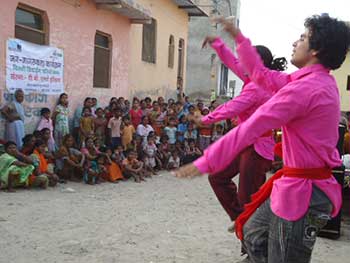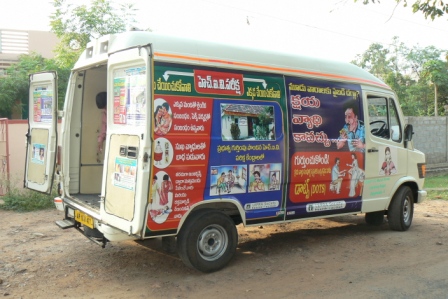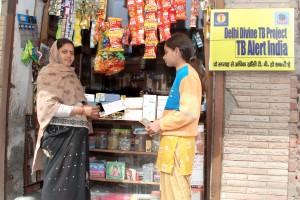
The Delhi DIVINE TB Project was launched in the Burari and Sant Nagar districts of Delhi in March 2008 by TB Alert’s sister organisation, TB Alert India.
The project aims to strengthen India’s national TB programme at a grassroots level, by providing community-based TB diagnosis and treatment facilities.
TB diagnosis and treatment
The project began by establishing diagnostic centres in the slum areas of Sant Nagar, Swaroop Nagar and Ibrahimpur, and a central treatment unit with qualified clinicians – all supported with drugs, laboratory equipment and awareness materials from the Indian Government. The unit provides antibiotics to treat drug-sensitive TB and refers complex and drug-resistant cases to the Rajan Babu TB hospital nearby.
In 2014, in a major success for the project, the three diagnostic centres transferred to the Delhi health authorities to run in future years. DIVINE has replaced them with new diagnostic centres in the Balasva, Mukundhpur and Bwana localities. This approach ensures the project has the greatest possible reach and is sustainable into the long term.
Community outreach and support
Although the Indian government has a good treatment programme, over 40% of people with TB are never diagnosed so there is a critical need to help them access life-saving treatment. Then once they are receiving treatment, they need to be supported to complete their course of medication.

The project also employs two Community Outreach Workers to support the project’s 75 trained volunteers – many of whom have themselves recovered from TB – who raise awareness of TB and provide treatment support at a local level by:
- organising community meetings
- identifying people with possible TB symptoms and referring them to TB services
- supporting patients through their treatment by delivering Directly Observed Treatment (DOT) and distributing food and clothing.
From April 2017, a specialist project worker is now managing TB among people with diabetes. Diabetes is known to make people more vulnerable to TB and the two illnesses together make treatment for each condition more difficult. As India has the highest rates of diabetes in the World this is an important innovation for the project.
 Urmila’s story
Urmila’s story
Find out about ‘big sister’ Urmila, who is helping people with TB through vital treatment.

 Urmila’s story
Urmila’s story